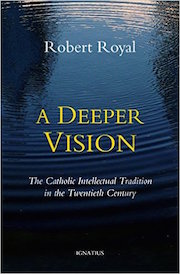Eminenza: Recently, you announced that you’re preparing yet another “very important document,” this time on “human dignity.” It will also address trends in contemporary society – “not only social issues but also a strong criticism of moral questions such as sex-change surgery, surrogacy, and gender ideology.” Which should allow “most people who are concerned” about your work “to be put at ease.”
Though I haven’t been formally invited to do so, please allow me a few words, in the speaking/listening Spirit of Synodality. We’re all part of a synodal Church now, aren’t we? (Though synodality seems to have been – temporarily? – suspended for the surprise “paradigm shift in theology” of Ad theologiam promovendam and “development of non-liturgical blessings” in Fiducia supplicans.)
For starters, don’t think that, in a major document about “human dignity,” you can simply rattle off dozens of pages about what every Catholic – indeed, what anyone brought up even in the fading Judaeo-Christian ethos of the West – believes about the value and sacredness of human beings. And that then you can invoke the Christian principle of “welcoming the stranger” to sneak in heterodoxy (about LGBTs) or to erode what remains of Christian societies by advocating for essentially limitless illegal immigration.
You used a similar tactic in Amoris Laetitia, writing several unobjectionable, even insightful chapters about the goods of marriage, but then introducing in wobbly Chapter 8 – and only in a clumsy footnote (¶351) – an opening for a change in Church teaching about who can receive the Holy Eucharist. You never really said that, of course, because you knew it would create blowback. To say nothing of bumping up against Our Lord’s own words about the indissolubility of marriage. But many people, both those who welcomed and opposed the change, noticed back then. Many more will be scrutinizing the new text, precisely anticipating such subterfuges now.
Do that, and you’ll only be confirming the view that the ambiguities of this papacy are deliberately intended to further heterodoxies under cover of confusion. That will hardly “put people at ease” about your work.
Please, quote Newman sparingly, if at all. And never as support for experimental “developments” that he would have laughed to scorn. The same for Aquinas. Lots of Catholics – academics and lay people – have read him, carefully, and absorbed his purity and force. When you try to enlist him, as in the past, as support for exercises in ambiguity, leading to claims about the inability to live the “ideals” of the Christian life, you don’t look learned and charitable, but superficial and sentimental. More like an undergraduate writing a paper, and trying to make scattered quotations into a moral system more congenial – to undergraduates. Not a good look.
Since you intend to deal with “social issues,” please also pay careful attention to the central challenges of the 21st century – the true signs of the times.

Your country is lovely; Buenos Aires is a jewel. But myopic politics led Argentina a century ago from being one of the great economies and models for the future to disaster. You’ve never experienced how a country and economy can actually work. Your new president, Javier Milei, is a bit of a wild man, to be sure. But unlike the Vatican’s embarrassing enthusiasm for the ambitions of the World Economic Forum, he told that body what is good – and not – about global capitalism. Problems notwithstanding, it has at least raised hundreds of millions of people out of material poverty. Milei may fail in Argentina because of national circumstances. But at least he isn’t mired in view of capitalism and workers stuck in the 1970s – or 1870s.
Besides, capitalism is not the central challenge of our day. Our challenge is a new form of totalitarianism.
The classic forms – primarily Nazism and fascism – are dead, though almost anyone who resists the new tyrannies finds himself labelled a “fascist.” Communism, with which many in the Church still like to flirt, has failed everywhere it’s been tried and only continues in a few places by large transfusions of human blood and moral naiveté. Even the weak forms of “humanistic” socialism, which Marx himself scorned, stumble because they contradict human nature by making politics and states the ultimate arbiters of morality and truth.
Even worse, a “woke” socialism (aka cultural Marxism) – at the U.N., the EU, even in large swaths of the American, Canadian, and European governments – is very much in the saddle, riding the peoples of the world.
The populist revolts against these neo-tyrannies, which many peoples experience on a daily basis at their places of work, their children’s schools, even in their parishes, are not “far-right” extremism or moral “rigidity.” Don’t be deceived. They reflect the legitimate desire of many people in many places not to have their lives and liberties radically disrupted by globalist schemes about LGBTs, massive illegal migrations, and openness to social currents daily destroying their families, faiths, cultures.
Elections this year, as last year’s in Argentina, will often reject all that, and in years to come will only grow stronger. Dictum sapienti. . . .
Speaking as an American – a country that admits over a million legal immigrants a year and does reasonably well in absorbing them – it’s a bad lesson for the many who want to come here and to other desirable places like Europe – to allow them to do so by breaking the law. A well-run legal order is the foundation of any good society, and of incalculable benefit for everyone. Ignoring those foundations in the present will not bear good fruit in the future.
In social matters, we would do well to return to the rich developments of modern Catholic Social Doctrine:
Subsidiarity – real subsidiarity not the suicidal subsidizing of anti-Christian forces, but the empowerment of civil society institutions like family, schools, local communities, and – yes – even nations.
And true solidarity, not the sociological fantasies of postmodern elites, but a care for one another rooted in the fullness of Christian reality about God and man.
And in truth. Catholic truth.















